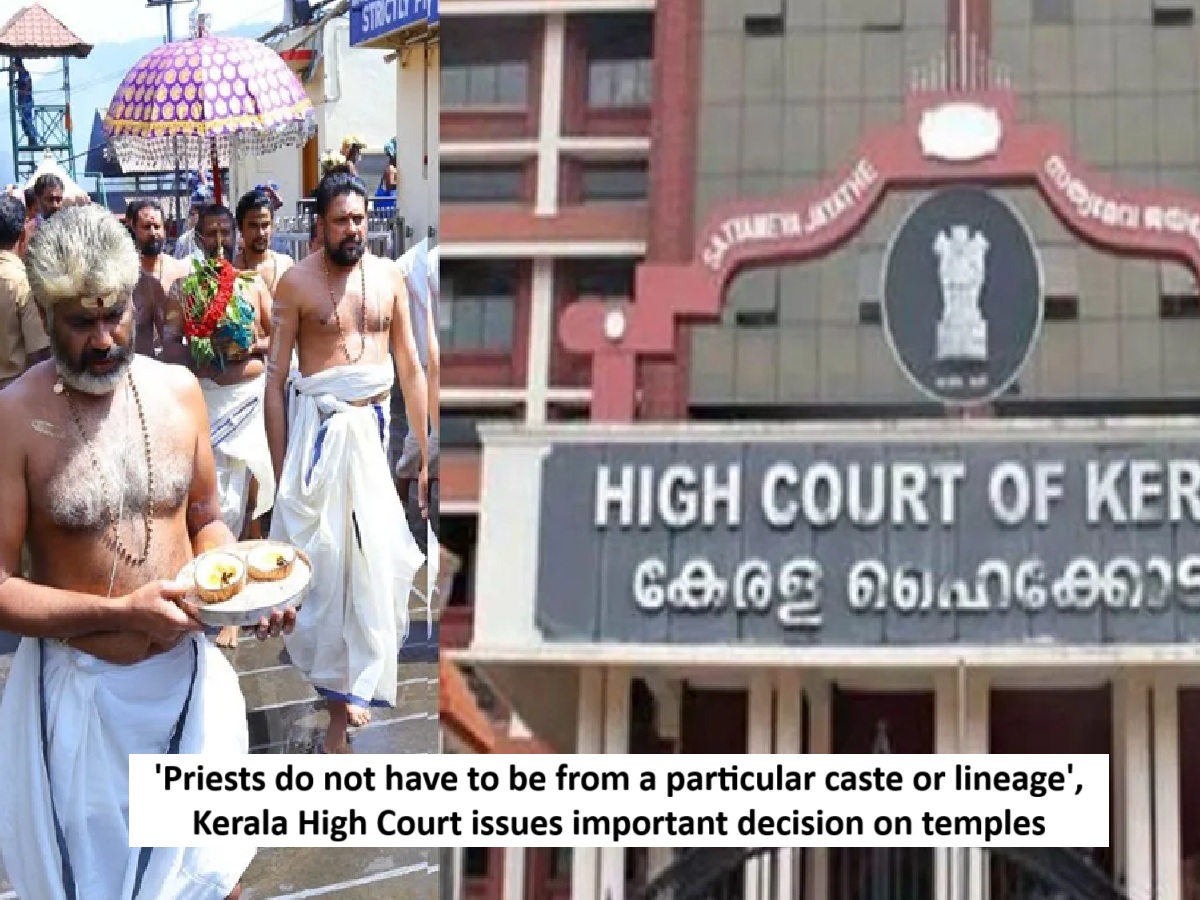
News Topical, Digital Desk : The Kerala High Court has ruled that it is not mandatory to belong to a particular caste or lineage to be appointed as a temple priest. The court also stated that selecting a priest based on caste or lineage is not part of the religious freedom guaranteed by the Constitution and cannot be protected by the Constitution. According to a report by Live Law, a division bench of Justices Raja Vijayaraghavan V. and KV Jayakumar delivered this judgment in the case of Akhil Kerala Tantri Samajam and Another vs. State of Kerala and Others. The court upheld the decision of the Travancore Devaswom Board (TDB) and the Kerala Devaswom Recruitment Board (KDRB) that accepted experience certificates from Tantra schools for the recruitment of part-time temple priests.
What did Tantri Samajam say in its petition?
The Akhil Kerala Tantri Samajam, an organization of approximately 300 traditional tantri families in Kerala , filed a petition challenging the recruitment process. The organization's president, Eesanan Namboodiripad, was also a party to the petition. The petitioners argued that the TDB and KDRB had no authority to determine the qualifications for appointing a Santhi. They alleged that some "Tantra schools" were granted accreditation to issue certificates without authorization, even though these schools did not impart proper Tantric education. They claimed that this was weakening traditional Tantri education and breaking the long tradition of temple Tantris issuing certificates. The petitioners argued that, according to religious texts such as the Agamas and Tantrasamuchayas, the appointment of a Santhi is an essential part of religious practice and should be protected under Articles 25 and 26 of the Constitution.
What did the court say on the argument of Tantri Samajam?
Citing the 1972 Supreme Court decision Seshammal v. State of Tamil Nadu, the court stated that the appointment of a priest is essentially a secular function performed by a trustee. Once appointed, the priest performs a sacred function, but the appointment itself is secular. The court stated, "The petitioners' claim that the appointment of a Santhi should be in accordance with religious texts and the Agama-Tantra, as it is an essential part of religious practice, cannot be accepted." The court also acknowledged that the petitioners genuinely seek to maintain hereditary privileges and caste-based recruitment.
The Samajam includes only members of Tantri families of the Brahmin community who have performed Tantric worship in temples for at least seven generations. The court said, "The requirement of belonging to a particular caste or lineage cannot be considered an essential part of religious practice, ritual, or worship. There is neither factual nor legal basis for this claim." The court further stated that any custom or practice that predates the Constitution cannot be given the status of law if it violates human rights, dignity, or social equality.
Tantra Vidyalaya process gets approval
The court found that the process for obtaining certification from Tantra schools is completely transparent and rigorous. Students who complete the course undergo an initiation ceremony, which demonstrates their preparation for temple duties. The final selection is made based on merit by a committee consisting of scholars and a renowned Tantri. This re-evaluates the candidate's qualifications. The court also noted that the TDB and KDRB sought objections before formulating the rules and that all procedural safeguards were followed. The court also rejected the Samajam's claim to be a religious sect (Article 26). The court stated that the institution demonstrated neither a distinct belief nor the organizational structure required to qualify for religious sect status.
Read More: Indian influencer mistreated in South Korea, Indian Embassy issues advisory; What are the rules?
--Advertisement--

 Share
Share



